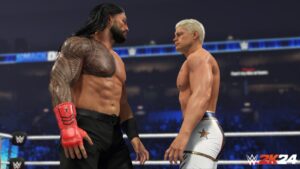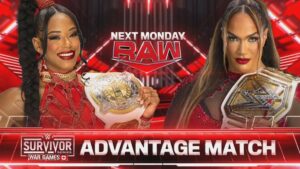One day, when Lucha Underground comes to an end, it will be remembered as one of the most revolutionary and ground-breaking wrestling promotions to ever have come into existence. On the flip side, however, it will also be remembered in a much more negative light due to its perhaps questionable business practices and harsh contract edicts that are far from negotiations.
Five years ago, iconic television producer, multi-time Emmy winner and Chairman of MGM Worldwide Television Group, Mark Burnett, who is known for such shows as The Voice, Survivor, Shark Tank and the new The World’s Best, teamed up with filmmaker Robert Rodriguez (From Dusk Til Dawn, El Mariachi, Sin City and Spy Kids) to create Lucha Underground for Rodriguez’s brand new television channel, El Rey Network. El Rey launched just one month prior to the announcement and Lucha Underground was set to be its first original, unscripted program.
“The ‘Lucha Underground’ franchise is perfect for El Rey Network,” Scott Sassa, El Rey Network’s Vice Chair said in the introductory press release. “It features good versus evil, intense action, humor, drama, great characters and most important great stories from two of the best storytellers in the business- Mark Burnett and Robert Rodriguez. It’s the perfect time and they are the perfect team to bring lucha to America.”
Burnett echoed Sassa’s comment saying, “Not since ‘The Contender’ premiered has a new series combined this level of drama and athletic competition. Our Luchadores are fantastic, the action will be intense – and this season is just the beginning.”
In order to staff Lucha Underground, El Rey paired with the top Mexican wrestling promotion, Lucha Libre AAA, which sent several of its wrestlers to take part in season one. The first five names announced as taking part were Blue Demon Jr., Sexy Star, Fenix, Drago and Pentagon Jr., with more to follow. LU taped its first episodes in September of that year and the series premiered to a national audience one month later. In the debut episode, Blue Demon Jr. defeated Chavo Guerrero Jr., Son of Havoc defeated Sexy Star and Johnny Mundo defeated Prince Puma. Season one also featured performances from Dragon Azteca Jr., Marty “The Moth” Martinez, Mil Muertes, Cage, Texano, Aerostar, The Mack, Ivelisse and more.
With its revolutionary approach, Lucha Underground caught the attention of wrestling fans both new and old as season one premiered to rave reviews and ratings that only continued to climb as the year went on. The show began to receive critical acclaim as well, as it was lauded for being a different and compelling way of bringing pro wrestling to life. Lucha libre had come to America, specifically Boyle Heights, California, and fans couldn’t get enough of it or enough of the luchadores, who turned “The Temple” into their very own playground. LU served as the launching point and U.S. television debut for more than a handful of wrestlers, allowing a larger audience to see just how talented they were. It also served as a re-introduction for some, including Johnny Mundo, whose stock has never been higher since leaving WWE and it’s all thanks to Lucha Underground.
Prince Puma (WWE’s Ricochet), Fenix, Pentagon Jr., Cage (Brian Cage), all made a name for themselves thanks to LU and that’s just the season one cast. Over the years, Daga, Joey Ryan, PJ Black, Jeremiah Snake (Sami Callihan), Dante Fox (AR Fox), Killshot (Shane Strickland), Sammy Guevara, and more, all found themselves beneficiaries on the global indie scene due to their time in LU.
The product was lauded, wrestlers were getting huge exposure, fans/believers were flooding “The Temple” in droves. The stories were impressive, the cinematic feel was interesting. Above all, LU truly was an alternative viewing experience at a time when wrestling fans didn’t really have much else beyond WWE to turn to. In fact, when LU started in 2014, the wrestling landscape was changing and the TV series that was equal parts wrestling and drama was at the forefront of that innovation.
So where did it all go wrong? Why when we look back at Lucha Underground’s legacy do we find its tainted with unhappy wrestlers who intentionally tried to void their contracts just to escape the confines of the once beloved Temple?
For starters, it might have had something to do with the reported seven-season contracts wrestlers signed at the beginning of their LU runs. Lucha Underground doesn’t make their contract agreements public but in 2015, Dave Meltzer had the chance to examine one. And while one should always take one source with a grain of salt, in this case, Meltzer is the only source as no other details have really leaked (save for individual performer’s contracts but more on that later), impressively so, over the four-season run of the show. What Meltzer reported was that the contracts were usually for seven seasons, not seven years, and that LU could determine just how long a season actually was. Meltzer went on to note that the deals were extremely one-sided as LU could terminate a performer’s contract after any season. In addition, non-compete clauses extended anywhere from six months to a year after the performer last appeared on TV, which for many meant the end of a season.
By the time season one came to an end, contracts hadn’t become a problem. Wrestlers had yet to sour on the promotion and accepted bookings in between that season’s end (April 2015) and next season’s filming schedule, which began in November of the same year. Season two began airing in January 2016 and it didn’t take long for El Rey to announce the show had been picked up for a third season. In fact, LU’s producers made the announcement to the cast after just one episode of that season had aired. The public announcement came a month later. So before season two even ended in July, LU began taping (March 2016) for the 40-episode season three, which debuted in September and ran until October of the following year. That was a long span of talent being forced to work restrictively. Just how restrictive those deals were wasn’t revealed at the time. In fact, it wasn’t until after season three that some more light was shed on how LU’s contracts were structured.
In February, New Japan Pro Wrestling ran it’s first ever live show in the U.S. with the G1 Special in Long Beach, CA. Ricochet was nowhere to be found on the first night and on the second night he came down to run off the Young Bucks and cut a promo offering a little jab at Lucha Underground. Ricochet wasn’t allowed to work those shows due to his LU deal, which although had run out in June, extended until season three finished airing, plus 90 days after. Ricochet went into more detail, clarifying in a Sports Illustrated interview, what exactly he was and wasn’t allowed to do per the parameters of his deal.
I can be on any TV as long as it’s not American TV. I can work indies, I can do iPPVs, most anything, really, just not on American TV.
Ricochet, who had been working for NJPW prior to joining Lucha Underground, seems like he was in a unique position. He had a major promotion to fall back on, not to mention, his deal seems like it was only three seasons as opposed to the seven Meltzer had remarked on. Knowing what we know now, he was definitely one of the lucky ones.
While Ricochet’s story didn’t involve a release due to his contract having ended, what it did was bring more light to just how complicated LU’s contracts could be. He was the first to come out and reveal contract deals, namely as far as exclusivity goes, but he certainly wouldn’t end up being the last.
The wait in between when season three aired its finale on October 18, 2017 and when taping for season four began on February 23, 2018 was one of the longer delays the promotion had experienced during its four-season run. And because of this, more unhappy talent seemed to come out of the woodwork. While the report was never substantiated, it had been rumored that talent were intentionally violating their contracts just to get LU to call them so they could discuss booking opportunities as all booking seemingly had to be run by officials. If true, this was certainly a disrespectful move by the company that was taking its time on filming for a season four anyway.
With LU’s contract situation looking dire and the company on hiatus, they watched as AAA entered into a formal partnership with IMPACT Wrestling in March 2017. Initially, it was unclear of what this would mean as LU’s “non-compete for U.S. TV” contracts were seen as part of the reason why AAA hadn’t previously tried to syndicate in the U.S. But things were changing and slowly, wrestlers who had been on LU such as El Hijo de Fantasma (LU’s King Cuerno) and Drago appeared at Slammiversary. Shortly after it was revealed that LU talent would be allowed to work TV for IMPACT, but would still be barred from WWE and Ring of Honor, and limited in what they could do for NJPW. This led to Johnny Mundo, Taya Valkyrie, Sami Callihan, Fenix, Pentagon Jr. and Cage, all performers who were under contract with LU, becoming weekly features on IMPACT on POP. The two promotions even co-promoted a show in April 2018, during WrestleMania Weekend, at which point the air date for season four of Lucha Underground was announced.
Being able to appear on Lucha Underground and IMPACT Wrestling was a great opportunity for LU’s contracted performers but it wasn’t an opportunity afforded to all. Ivelisse, who is at the center of LU’s latest contract controversy, told Fightful’s Sean Ross Sapp in an exclusive interview, regarding being left off the IMPACT vs Lucha Underground card, “Of course it pisses me off but whatever that’s the business.” In a separate interview, Ivelisse also discussed not competing in WWE’s Mae Young Classic and believing she wasn’t contacted for the opportunity due to her LU contract.
It started to become clear back then that Ivelisse was not happy but the extent of that unhappiness was unknown until recently when she reluctantly took to social media (the tweet has since been deleted) to discuss her lengthy ordeal of trying to get her release from the company.
l’ve done everything in my power to avoid having to do this but.. at this point I literally have no other choice.. For a bit over 1 1/2 [years] now l’ve been battling LU to grant me my release. They convinced me to do S4 under the promise that I’d be released after the season concluded and was still unhappy. They currently are still refusing to do so despite having been told numerous times that they would. This has caused me an unbearable amount of grief for so long now, I really have no words to describe and don’t know what else to do.. being legally held hostage while Pro Wrestling is booming is a matter not to be taken lightly, especially coming from someone who has dedicated their life to their work, its everything to me. I am at my wits end, so at this point, regardless what happens from here on out, at the very least my story is told.
Ivelisse was backed “100%” by fellow LU wrestler, Joey Ryan, who has been linked to All Elite Wrestling but can’t sign for the company given he’s still under contract.
https://twitter.com/JoeyRyanOnline/status/1085301692961181697
This is not a good look for a company which seems to be in no rush to start taping for a fifth season due to financial concerns.
Ivelisse is right, pro wrestling is in a boom right now and thanks to these ridiculous deals, LU’s contracted wrestlers can’t fully experience that. Now, a lot of these performers only made it big thanks to LU and in some ways, they owe career success to the company and maybe even some loyalty. The kind of loyalty that Ivelisse showed by sticking around for season four despite misgivings. But unlike Jack Evans, Angelico, AR Fox, and others who opted to leave when LU was willing to grant release requests, it seems the window for performers to be granted releases has now closed. Meaning Ivelisse, Joey Ryan and anyone else who might have aspirations to work for WWE, AEW, NJPW, ROH, etc are, for the time being out of luck. But that’s the thing about loyalty, even it has its limits, ones that Lucha Underground has reached with many of its performers.
Now, with the story out there, it’s hard to imagine this will go on much longer, but even so, the damage has already been done. Even if a season five does happen, it’s hard to believe that many wrestlers will want to sign on the dotted line knowing what it might cost them.
Lucha Underground will always be remembered for the way it transformed the industry but it will also be marred with a black mark given talent are essentially being held hostage to the promotion. What happens next remains to be seen but no matter what it is, LU will have some damage control to do among its fans and its performers, both groups of which had already begun to abandon the promotion over the past two seasons.






